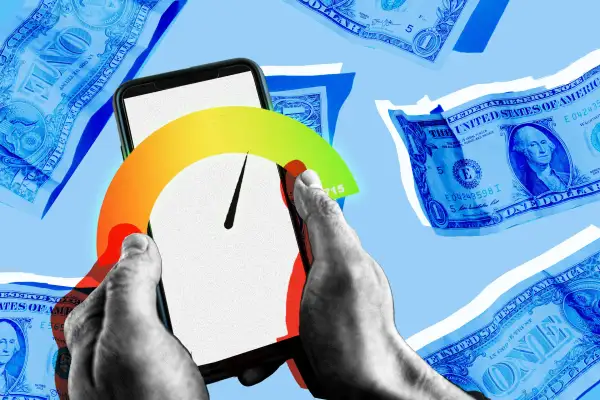New Credit Karma Tool Helps You Build Credit With Rent and Utility Payments

A new Credit Karma feature aims to help you build credit with everyday bills you're already paying.
Credit Spark — which lets users report on-time rent, utility and phone bill payments to TransUnion, a major credit bureau — is launching as part of Intuit's all-in-one Consumer Platform. The company says the platform “seamlessly delivers year-round control of personal finances,” pairing advanced agentic AI with a network of more than 13,000 human experts to help users make smarter money moves, from improving credit to tackling taxes.
Credit Spark, which is free to use, can report up to two years of past payments, helping create a credit file that shows lenders you have a history of being a reliable customer.
Crucially, the company says it will only include on-time payments — meaning late or missed ones won’t count against you. Once a member links their accounts and chooses which bills to report, Credit Karma handles the rest, automatically sending the data to TransUnion.
Credit Spark is similar to Experian Boost, another free service that helps users build credit by sharing only on-time payments. Credit Spark reports exclusively to TransUnion and can affect both FICO and VantageScore models. Experian Boost reports only to Experian and can impact FICO Scores 3, 8, 9 and 10, as well as VantageScores 3 and 4.
“Credit Spark allows Credit Karma members to build their credit scores using payments they are already making,” Ryan Steckler, head of product at Intuit Credit Karma, tells Money. “It is credit building on easy mode — safe, no debt, no extra spending, all on your terms.”
The feature ties into Credit Karma’s broader mission to make credit building more accessible and less intimidating.
“Improving credit scores is a top financial goal for 53% of our members,” says Steckler. “Credit Spark addresses a core member problem: wanting to improve their credit score but not knowing where to start and feeling overwhelmed by the credit system.”
That uncertainty about how credit works (and how to improve it) is widespread. Roughly 32 million U.S. adults are considered “unscoreable,” including 7 million with no credit history and 25 million with thin files, according to the Federal Reserve. Without a robust credit record, it’s harder to qualify for loans, apartments or even some jobs, because credit often serves as a proxy for financial responsibility.
Who it helps most — and who it won’t
Credit Spark is designed to help younger users, renters and first-time credit builders — essentially, anyone looking to establish or strengthen their credit history, according to Steckler. He notes that the feature may be especially useful for people in lower credit ranges or those with thin files, since it can retroactively report up to two years of on-time payments and as many as five new trade lines without requiring a credit card.
For those with already good or excellent credit, the benefits are more limited. Credit Spark only reports to TransUnion, affecting just that bureau’s report — and mainly your VantageScore, the scoring model Credit Karma uses.
Most lenders still rely on FICO scores and often pull data from Experian and Equifax in addition to TransUnion. So just because your VantageScore goes up with the help of Credit Spark, it may not automatically translate into better financial opportunities.
Experts say that’s the caveat with these kinds of “credit boosters.” When programs like Experian Boost or Credit Spark lift your score, the change might only affect a single scoring model. Even if a consumer qualifies for a boost, “the boost may not make a difference,” as Lindsay Sain Jones, a credit expert and legal studies professor at the University of Georgia, told Money last year.
Some pros caution about other trade-offs. For instance, free credit-boosting programs still typically require users to share sensitive financial information, and as credit bureaus collect more information, errors are becoming more common. These mistakes are high-stakes, as they can affect major financial decisions, including whether someone is approved for a loan, housing or even a job.
So remember: While tools like Credit Spark can definitely help you build credit, they're not guaranteed shortcuts. Meaningful improvements take time and diligence.
CORRECTION: A previous version of this article stated that Credit Spark only affected VantageScore models. It can also affect FICO Scores, because both FICO and VantageScore models use data from your TransUnion report. The story has been updated.
More from Money:
The Hidden Cost of Using Everyday Bills Like Netflix and Rent to Boost Your Credit Score
5 Best Credit Repair Companies of November 2025
This Underused Retirement Strategy Could Boost Your Fixed-Income Payout by 23%





